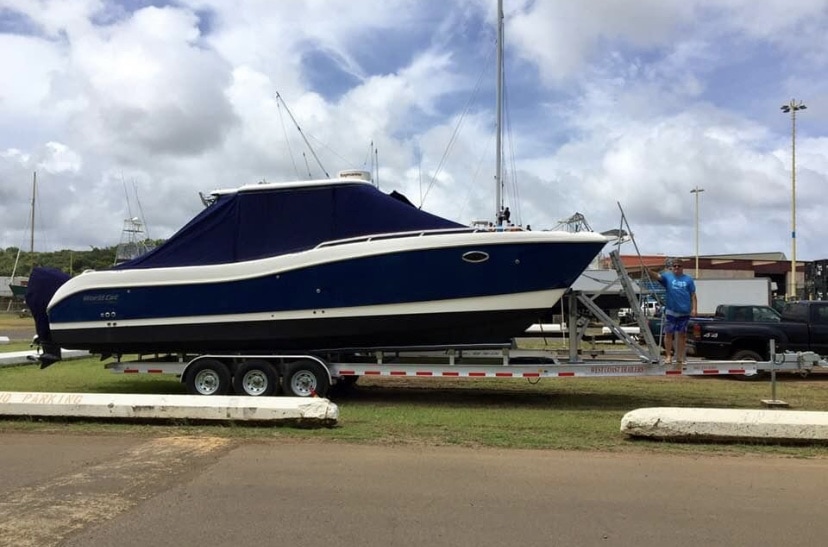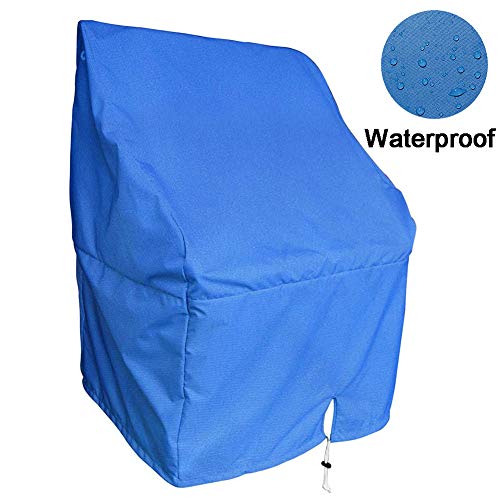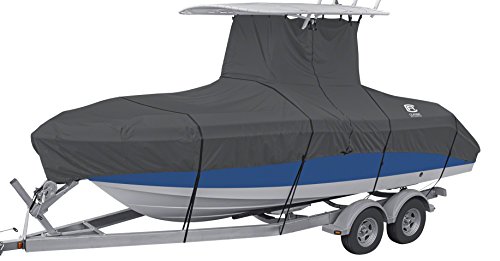How Many Hours is a Lot For a Boat
Whether you’re in the market for a new boat and are considering used options or whether you are worried that your current boat is getting old, understanding how many hours is considered a lot for a boat is an important question.
How many hours is a lot for a boat? Usually, the motor is the most important thing to pay attention to when considering how many hours your boat will last. Gasoline engines generally last for about 1,500 hours, while diesel engines can last 5000 hours.
Whether you are buying a new boat and want it to last as long as you can or you’re purchasing a used boat, here’s what you need to know about how long your boat is likely to last and some tips to help you dedicate the time and effort needed to give it longevity.
What Is A High Number Of Hours For A Boat?
A lot of variables go into what is considered a lot of hours for a boat. Everything from the type of boat to all sorts of aspects of how it has been used will affect what is considered a high number. Here are a few things to consider.
Motor Or Sailboat?
Motorboats and sailboats may wear out differently. The parts of a boat that wear out quickest are typically the moving parts, like the engine and rigging, not the stationary parts like the hull. Both motorboats and sailboats have moving parts, but replacing those parts will vary a lot depending on the type of boat that it is.
Although most sailboats have motors, those motors don’t typically take the same kind of wear and tear that they would on a boat that is only powered by an engine. However, just about the only moving part that will need replacing on a motorboat is the engine, so this is really your only concern when considering the age of your powerboat.
One thing that both sailboats and motorboats have that needs replacing regularly is the anchor line. Anchor lines should generally be replaced every three to five years.
When Do Sailboat Parts Need Replacing?
- Sails. Depending on the amount of sailing that has been done and how high-quality the fabric is, sails typically need to be replaced every 5 to 10 years.
- Rigging. If your sailboat is covered by insurance, you’ll probably need to replace your rigging every ten years or so. It may be able to last longer, but it may not be covered by insurance after the 10-year mark.

When Do Motorboat Parts Need Replacing?
The first part of a motorboat that typically needs to be replaced, assuming the boat has been cared for well, Is the engine. Generally, a gasoline engine can run for about 1,500 hours before it needs to be serviced extensively or replaced. Diesel engines can last much longer, generally up to 5000 hours with the same kind of maintenance and conditions.
What Is It Made Of?
What your boat is made of is another important component in determining how long it can last. Here are a few things a boat may be made of and how long to expect them to last:
- A fiberglass boat hull is one of the most common options, and one of the most durable. Fiberglass can easily last for more than 50 years, especially if it is cared for well.
- Wood boat hulls may require more maintenance to stay in good condition, but they can last a very long time, up to 60 or 80 years.
- Aluminum hulls have one of the shorter lifespans of your options, typically lasting between 30 and 40 years on average.
How Is The Boat Used And Maintained?
Not surprisingly, a boat that is pushed hard to run all day long for weeks at a time, like a commercial fishing or charter boat, will likely have a shorter life span than one that is gently used only occasionally on the weekends. Maintenance is a very important element as well.
Hulls that are regularly waxed, bottoms that are kept painted, and engines that are oiled and flushed will last considerably longer than components that do not receive the same kind of care. Even the place that the boat is located can have an effect on its longevity.
Generally, boats that are used primarily in saltwater will have shorter lives than those used in freshwater. Boats that are kept in the water may not last as long as boats that are hauled out after use. Engines that need to fight against rough waves and other harsh conditions will typically not last as long as those that are primarily used on calm water.
The Make Of The Boat
Some boat designs are simply better than others. Boats that have been designed for longevity and have a reputation for lasting a long time will typically survive longer than boats that are cheaply made, given the same level of maintenance. Brands like Boston Whalers have a reputation for long life.

How To Know When Buying A Used Boat Is A Good Deal
Given the variability in how long boats last, it can be a challenge to determine whether a given boat will be a good deal or not. Sometimes one boat may not be nearly as good of a deal as the exact same kind of boat from the exact same year. Here are a few things to look for to help you know whether a boat that you are considering is a good deal or not:
- Record-keeping. Dedicated boat owners should have a record of everything that has been done to the boat. Look to see if components have been replaced at the recommended times to tell whether they are likely to last or go out soon after you make the purchase.
- Maintenance. It can be challenging to tell whether a fresh layer of wax has just been applied to a boat that’s been ignored for years or whether a boat has been waxed regularly, but by looking closely at areas that receive a lot of wear, like the deck, you may be able to tell whether they have been bleached by the sun or worn down by weather due to irregular waxing.
- Usage. Determining whether someone is telling the truth about how they’ve used their boat, unfortunately, largely depends on your capacity to tell whether they are telling the truth or not. However, some signs like lots of wear in places that foot traffic may occur or signs of strain in places that are put under stress when the boat is underway can be indications of heavy use.
- Customization. This certainly isn’t a guaranteed indication of a boat’s merits, but dedicated boat owners who maintain their boats well also tend to customize. Look for tailor-made sail covers, awnings, seat cushions, and more to help you determine whether this boat has been well-loved.
How To Extend Your Boat’s Life
If you want the longest life possible for your boat, good maintenance is essential. Here are some ways that you can help your boat to live longer:
Rinse With Fresh Water
Saltwater can be extremely destructive to your boat. It is corrosive and causes small scratches as the salt dries. Therefore, it is a good idea to rinse your entire boat with fresh water when you are finished using it.
Definitely be sure to rinse off any areas of the deck where foot traffic may grind salt crystals into the wax. It is also a very good idea to flush your engines with fresh water regularly, if not after every use.
Wax Frequently And Don’t Skimp On The Wax
Wax is your boat’s protection against the destructive rays of the sun and scratches from salt and sand. Waxing is laborious and time-consuming, but it will dramatically extend the life of your boat. Wax at least several times a year, more often if possible, especially if you live in an area with intense sunlight and if the boat is kept in saltwater.
Wax your boat thoroughly and buff the wax in to provide a thorough layer of protection. Use the highest quality wax you can afford, as it will work better and allow you to go longer between waxings.
Cover Where Possible
Wax is a great protection against the sun, but it isn’t one hundred percent effective. Awnings and covers are much more affordable to replace than your entire boat. It’s a good idea to cover as many areas of the boat as possible.
Consider putting an awning over the cabin and using a cover stretched over the deck where it is reasonable. Sails should always be kept within covers when not in use.
Eliminate Mildew
Boats create a moist environment, which can make mildew a problem. Mildew isn’t just unsightly. Over time, it can damage surfaces in your boat.
Therefore, keep a mildew remover on hand and spray down any surfaces which may show mildew very quickly. It’s a good idea to go over your boat in search of mildew every week or so, or monthly at a minimum.
Enjoy Your Boat For Many Years To Come
No boat will last forever, at least not without extensive repairs and maintenance over the years. However, by choosing a high-quality boat to begin with and making maintenance an essential part of your routine, you may be able to extend your boat’s life.




